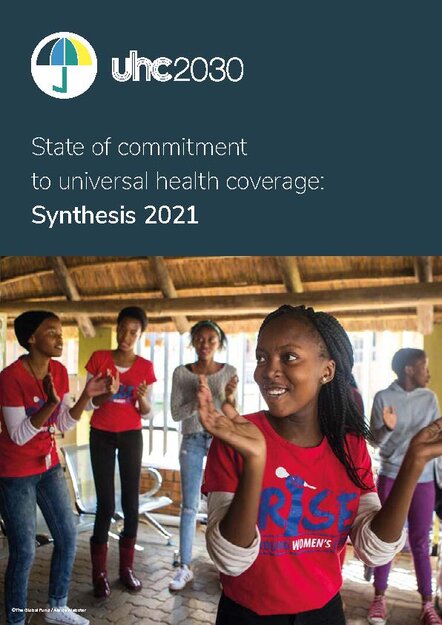Global health leaders and stakeholders gathered in Berlin last...
10 December 2021
A lesson on the urgency of universal health coverage: UHC2030 presents the results of its multi-stakeholder review

The lesson of the pandemic is clear: Achievement of universal health coverage (UHC) has never been more urgent. Health is an investment in the future well-being and safety of all. Everyone, everywhere should have access to good-quality health services without facing financial hardship, including vaccines, tests and treatment for COVID-19.
The State of UHC commitment brings a unique multi-stakeholder view to a simple question: Are countries acting on their commitments to UHC?
This year’s review draws on many sources, from online surveys and policy reviews to media monitoring and consultations with non-state actors. It provides an overview of key findings in 45 countries, consolidates diverse perspectives and summarizes progress, gaps, challenges and opportunities in achieving the commitments and actions for UHC. It consists of 45 country profiles, including 8 progress review dashboards, which can accessed through the UHC Data Portal. A synthesis summarises findings from the review of data in the 45 countries.
The state of UHC commitment in 2021
The review shows that countries have made a wide range of commitments to UHC, but that gaps persist between policy, implementation and results. What are the key findings of the State of UHC commitment and how can countries work to build equitable and resilient health systems that leave no one behind?
- Key finding 1: Most countries have agreed strong national commitments and targets for UHC, and an increasing number are reviewing their progress. To achieve UHC by 2030, governments must act on their commitments.
- Key finding 2: Country commitments and reporting on UHC are often not linked to a clear strategy to achieve UHC. Governments should develop and communicate clear pathways to achieve UHC in national health strategies based on resilient and equitable health systems.
- Key finding 3: Government plans and reporting on UHC often focus on specific diseases or services in a fragmented manner. UHC is an opportunity to accelerate outcomes across the health agenda, based on a comprehensive approach to strengthening health systems.
- Key finding 4: Non-state actors lack opportunities to participate in government-led planning, progress reviews or implementation towards UHC. Governments alone will not achieve UHC, and they must create space for non-state actors to participate meaningfully in relevant government processes.
- Key finding 5: The importance of equity is strongly acknowledged in governments’ UHC initiatives but need to be operationalized comprehensively. Governments must identify and reach all groups in society that are at risk of neglect, including groups at the intersection of multiple vulnerabilities.
- Key finding 6: Governments have committed to multisectoral action to address factors outside the health sector. Collaboration with non-health sectors could be significantly improved to ensure systematic, collective action to address the social, economic, environmental and commercial determinants of health.
Read more on the State of commitment to universal health coverage
Find out more about your country’s state of UHC commitment
The UHC Data Portal is a single interface for obtaining an overview of the state of UHC commitments in every country, for data on UHC and health systems and for visualization of official statistics on the SDGs and selected sources from UHC2030 partners.
Additional Resources
The Civil Society Engagement Mechanism for UHC2030 (CSEM), along with partners around the world, held nearly 20 focus groups (representing 25 countries) with civil society and community representatives about their personal experiences with the state of each key commitment area on UHC. This summary of insights and recommendations complement the data profiles and global synthesis, and can be seen here
